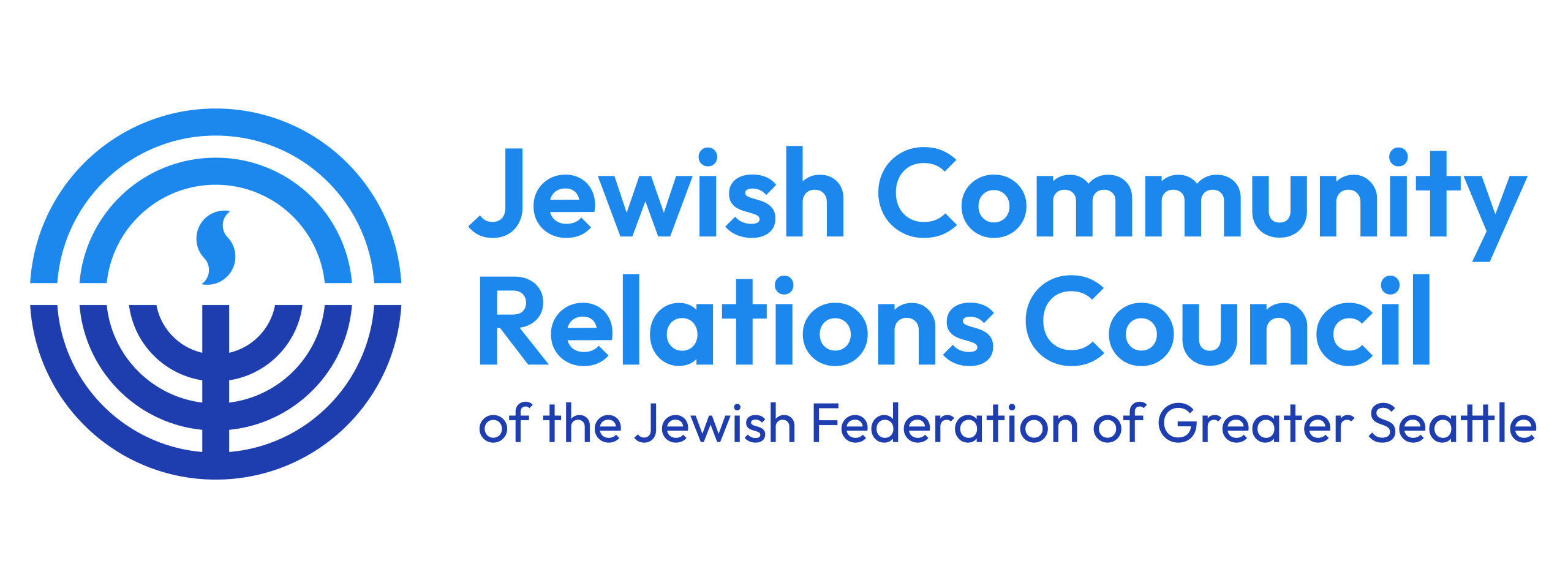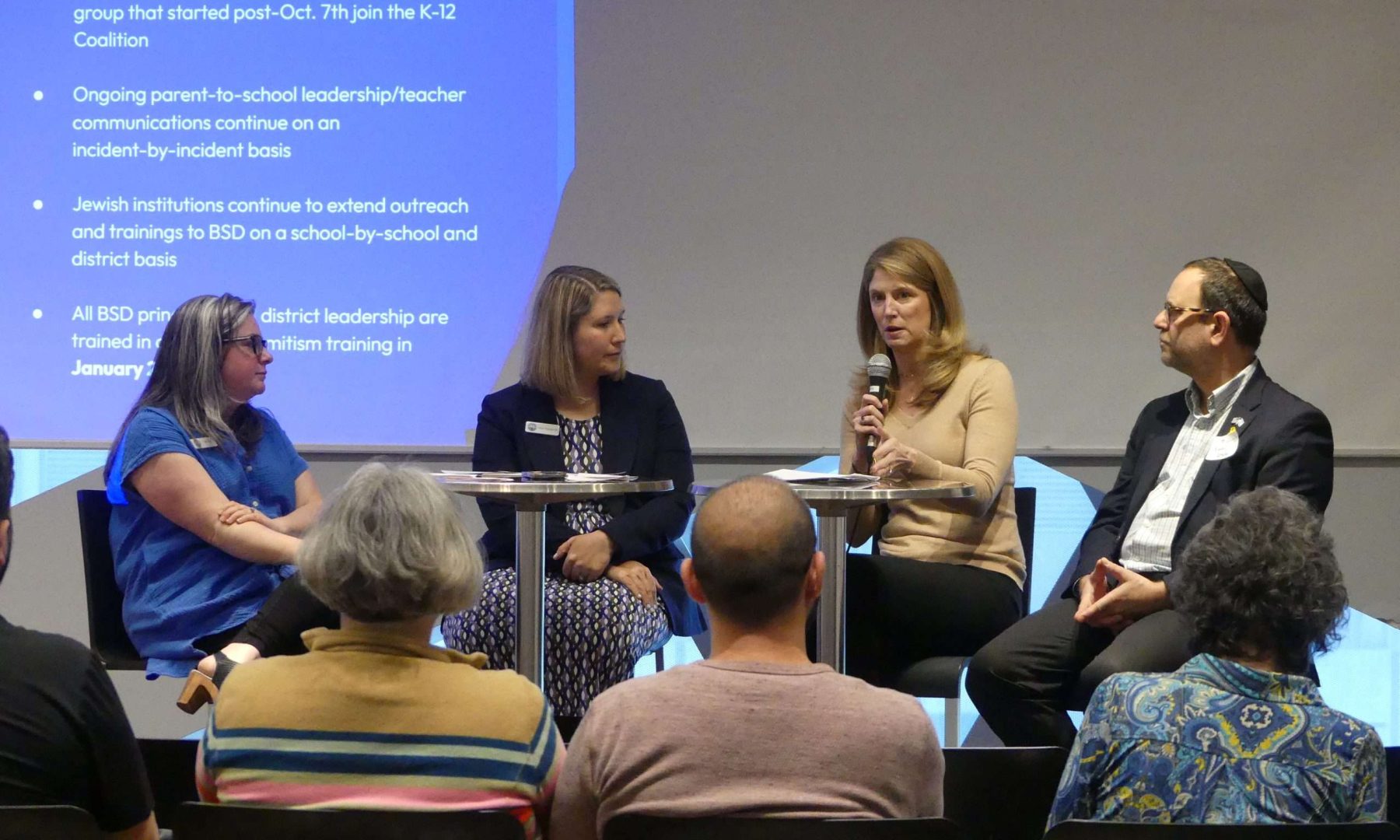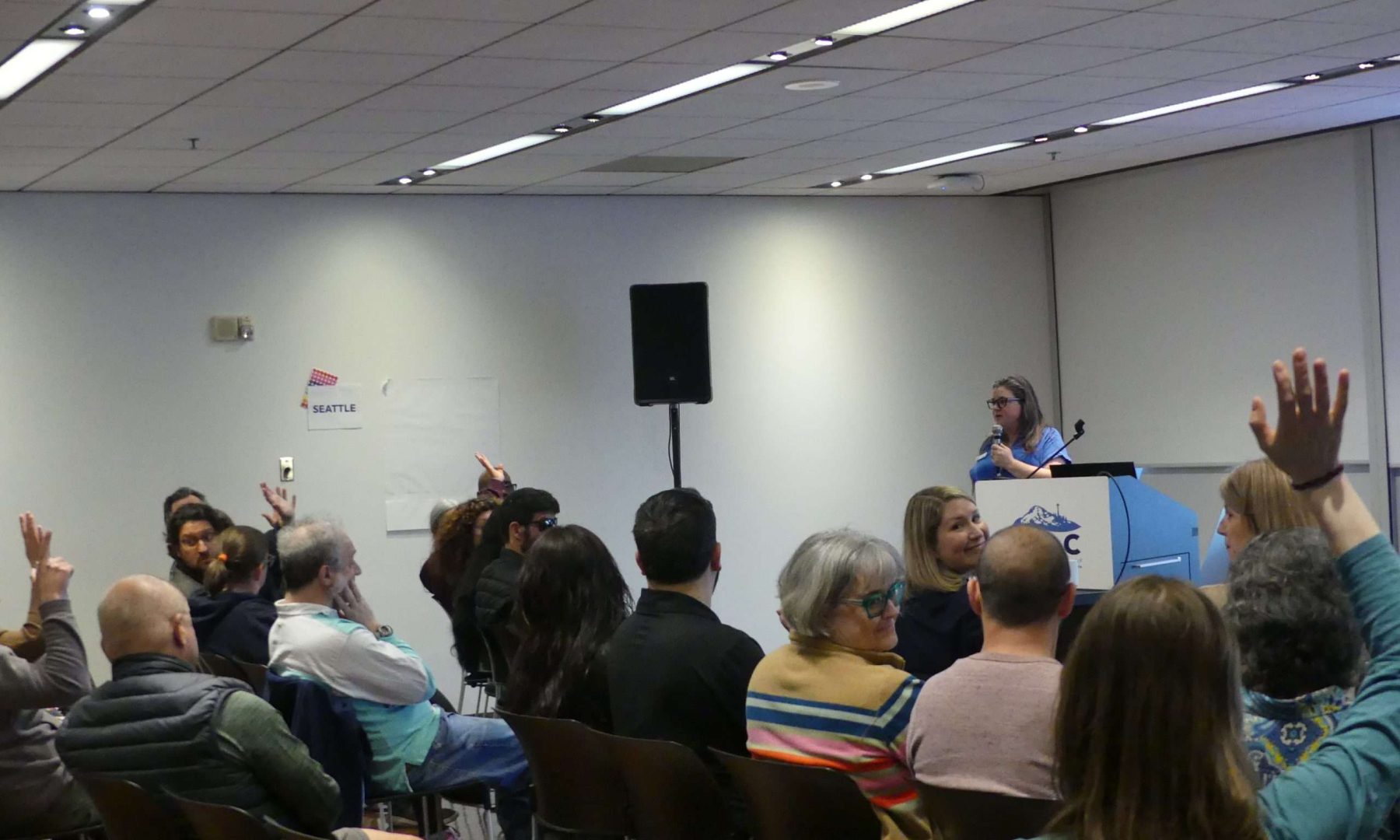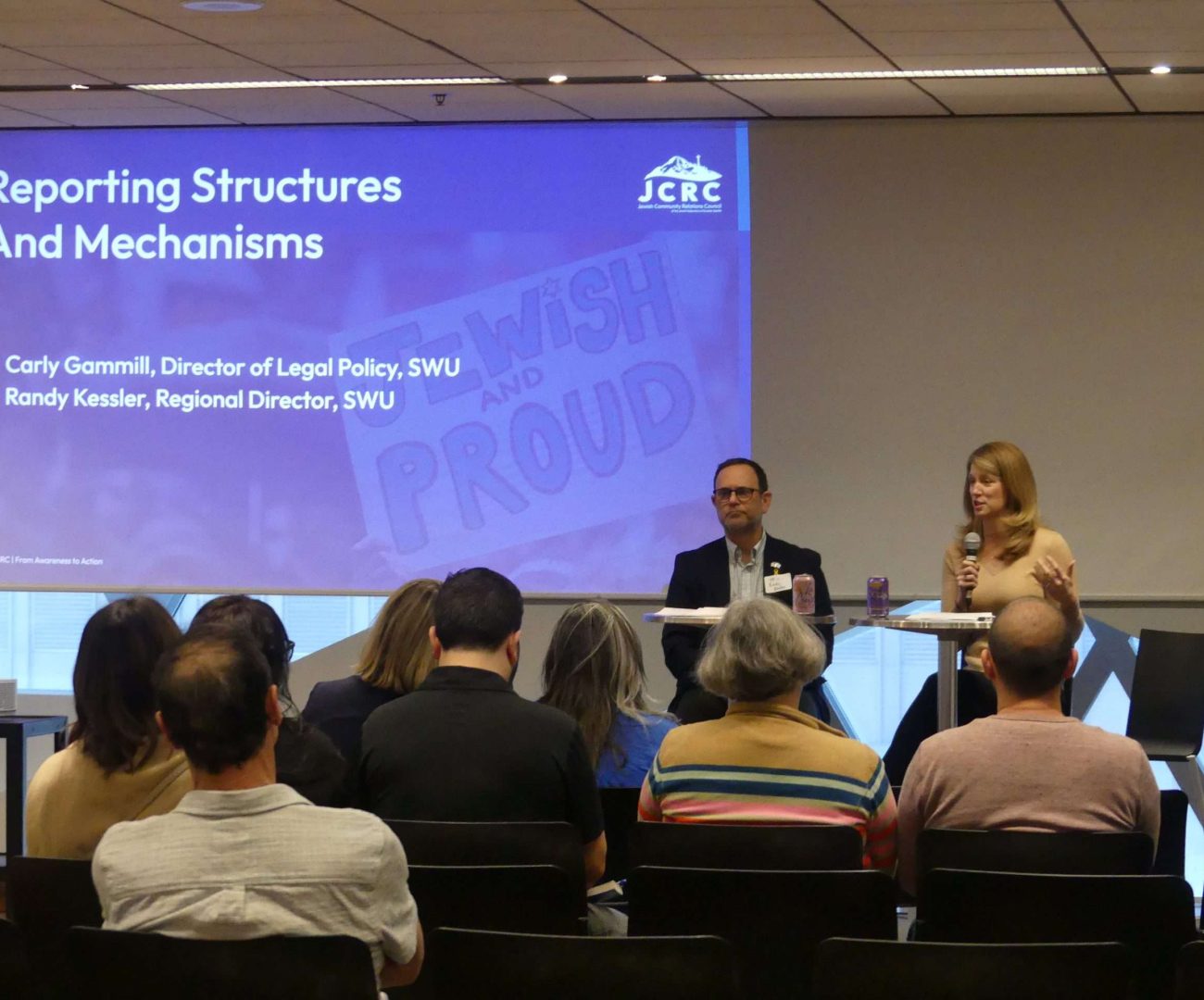
Meeting the Moment: JCRC’s Leadership in Confronting Antisemitism in K-12 Education
Written by Max Patashnik, May 13, 2025
On May 4th, the Federation’s Jewish Community Relations Council (JCRC) hosted an event titled From Awareness to Action: Protecting Jewish Students in K-12. Once only lightly involved in the K-12 education space, JCRC has undergone a significant transformation from the immediate days following October 7th to now, stepping forward to meet a rising need with clarity, resources, and community leadership.
Sunday’s event brought together diverse Jewish families from schools and districts across the Puget Sound region to tackle the growing challenges their students face in educational environments. Participants broke into small groups by school district and shared personal experiences—what were they noticing at their students’ school vis-à-vis anti-Jewish harm? What was missing from the school leadership’s response? Where did communication break down? Conversely, what was going well? Groups recorded findings from their rich discussions on large sheets of paper and color-coded them into various issues, such as: curriculum, peer-to-peer incidents, and teacher/admin to student. Then, everyone was invited for a gallery walk around the room to take in a wider view of what’s happening across schools and districts.


In her response to hearing families’ experiences, which often included being dismissed or not feeling seen, Perri Doll, JCRC Associate who leads the JCRC’s work to address antisemitism in K-12 schools, shared, “In working with school administrators and district leaders, they must know that post-October 7th, the Jewish community has been in trauma. A community in trauma deserves a trauma-informed response. And this is often missing.”
The event was done in partnership with StandWithUs. Their legal director, Carly Gammill, helped to demystify terms like Title VI violations, hostile educational environments, and substantial disruption, to help families understand their rights and the full scope of legal options.
The Federation’s JCRC approaches addressing antisemitism in schools in a holistic way—prioritizing relationship-based advocacy, systemic interventions, and legal options, when necessary. They have developed resources and strategies to help families address gaps in understanding of Jewish identity and antisemitism in schools. This includes guidance on how to frame communications with school administrators, build relationships with PTAs, and navigate existing internal school dynamics.
Critically, the event emphasized that antisemitism must be treated as a systemic bigotry, requiring coordinated, community-level responses. Doll, a former public school teacher herself, emphasized, “We must go beyond addressing anti-Jewish harm. We must also promote Jewish visibility, identity, and pride. We can help our schools incorporate Jewish life into school culture through awareness of the Jewish calendar, celebration of Jewish American Heritage Month, and forming Jewish Student Unions where desired.” These efforts ensure Jewish students are both protected and positively represented.
“We must go beyond addressing anti-Jewish harm. We must also promote Jewish visibility, identity, and pride.”
Perri Doll, JCRC Associate
Participants were given concrete homework: take meetings with school leadership before the end of the school year, connect with Jewish institutions that can support their efforts and help with incident response, and get involved with other Jewish families and the growing K-12 coalition JCRC is cultivating.
Since the event, parent participants have joined school district-specific Jewish parent WhatsApp groups, and several school leaders have reached out to Doll for Jewish American Heritage Month resources, saying that parents connected the district directly with the JCRC for support.
Participants walked away with more than just awareness—they left feeling empowered, equipped with practical tools for what to do if an incident occurs, how to navigate both relationship-based and legal channels, and supported by an organization that understands their needs. They were reminded that they are not alone—the JCRC and our Jewish communal institutions are here, and they can help.

– Issaquah School District parent.
Next Steps
Use this checklist to engage in community through a relationship-driven approach. Share it widely to support effective advocacy in K–12 schools!